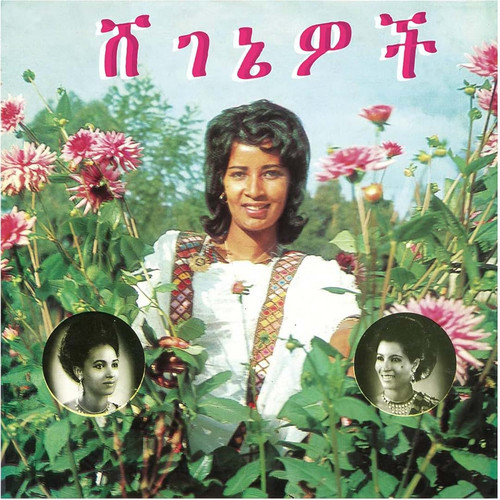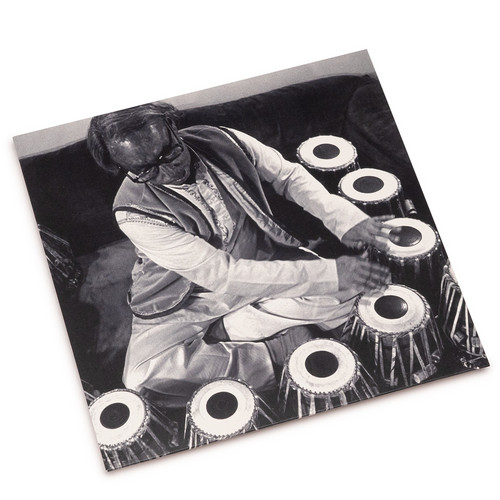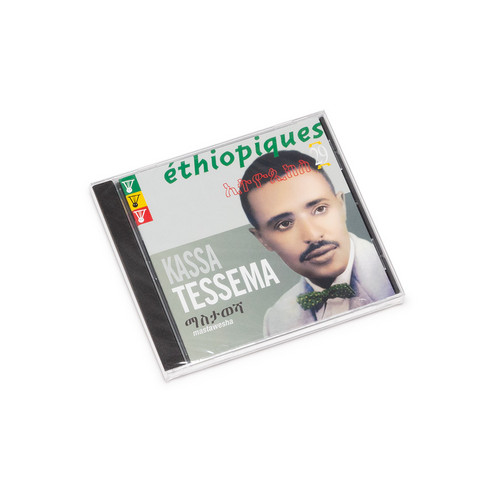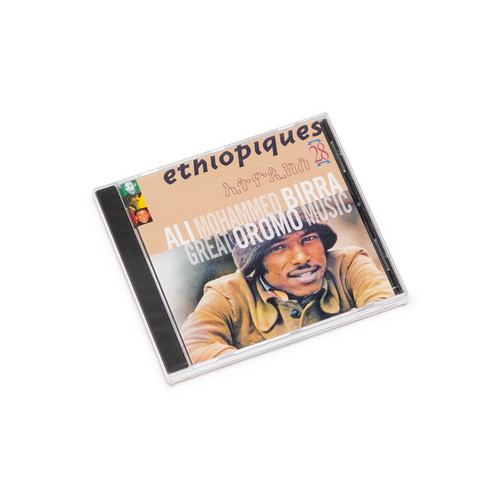Folk /
A Collection Of Slow Airs By Some Very Fine Fiddlers
Nyahh is honoured to be able to present this collection of airs to you from some of Ireland’s best fiddlers.
老来难 = Old Man Blues
*2025 stock* Born in 1945, Guo Yongzhang has performed zhuizi, a traditional Chinese style of narrative singing, for half a century. An artform whose history spans over a century, zhuizi originated in Henan province. Its main musical instruments are the zhuihu, a two-stringed bowed lute, and the zhuibang, a wooden percussion played with foot tapping. Almost completely blind, Guo Yongzhang is known for his peculiar, resounding yet smooth vocal style. He sings with deep feelings and great verve. L…
Nikhil Banerjee in California 1967
*2025 stock* These are live recordings of Nikhil Banerjee at KPFA Radio in Berkeley, California, on the 9th of July, 1967. It is for the first time they are made into vinyl record and published in China. The original recordings were on two reel-to-reel tapes. In 1988, American record label Raga Records released the recordings on both CD and cassette. Until a few years ago, it was by chance that producer Tu Fei got hold of these reel-to-reel tapes and decided to release this vinyl version, hoping…
Zhuizi Selections
This studio album is recorded after Guo Yongzhang performing on the 5th Tomorrow Festival stage.
Songs of the Civil War
The Civil War, one of the most deeply felt episodes in America's history, has left a heritage of music that reflects those feelings in the most vivid way. Indeed, this music was so intimately involved with events of the time that it became part of those events. These songs were sung in homes, North and South, at rallies, political gatherings and mass meetings, and on the very battlefields. This selection comprises several of the most popular songs of the era. First recordings from original editi…
Centrafrique - Central Africa
A long-time best-seller of the MEG-AIMP collection and long out of print, this album of sanza music recorded among the Gbaya people of the Central African Republic by ethnomusicologist Vincent Dehoux was originally released on CD in 1993. It is now being reissued to coincide with the exhibition Afrosonica - Soundscapes. It features a selection of 'songs for thought': an intimate repertoire conducive to introspection, accompanied by the repetitive, meditative sound of lamellaphones.
s/t
This album bridges past and present through the voice and instruments of Maria Violenza and Luciano Turella, with the Irtumbranda project (formerly performing as the duo BrandaMaria), offering an intimate and visceral reinterpretation of Sicilian musical tradition. On Side A, the island’s ancient melodies come to life through an interpretation that enhances their raw and profoundly visceral character. Maria Violenza, who grew up listening to these songs in family gatherings and popular festivals…
Metamusik Festival Berlin ‘74
Carrying on from recent archival releases from masters of Indian classical tradition such as Kamalesh Maitra and the Dagar Brothers, Black Truffle is pleased to present a previously unheard recording of a concert by Pakistani vocalist Salamat Ali Khan. Born to a musician family in Hoshiarpur in the northwestern state of Punjab, Khan moved with his family to Lahore in Pakistan after the 1947 partition of India, becoming a child musical prodigy. Khan was a master of the kyhal form of Hindustani cl…
Miao Mouthorgans & other rare instruments in Guizhou, Sichuan, China
Tip! The term Miao is a very ancient Chinese misleading pseudo-ethnic categorisation, what we call the Hmong in western languages, a term recognised by colonial French Indochina. Miao became a generic term which does not reveal the diversity of 38 subgroups or 9 million people, mostly in Southern China Guizhou Province.
China having moved towards the market economy, a large number of minority regions have marketed a commodity available only to them: their ethnicity itself. Ethnic tourism has dev…
sɯrdɯk/qaraŋa
*85 copies limited edition* Rooted deeply in traditional Sakha music Aldana Duoraan creates a meditational state of mind using an instrument called “khomus” and her voice. The second album of Prague based musician born in Sakha republic is a two-sided EP called “sɯrdɯk / qaraŋa” which means “lightness / darkness”. The name is inspired by the duality of the universe, light and dark sides of a person, ever changing reality.
The name of the album is written in the first Sakha alphabet created by Sa…
Faces
Big Tip! New Torso! Gloriously mature and engrossing movements for cello, flute and tape self-released from the Japanese duo on their Ozato label. It’s hard to write anything about Torso’s music without giving the impression that this is polite, nicely buttoned-up contemporary classical dishwater. It isn’t. The same constituents are there - bowed cello, shimmering flute, woody upright bass and expensive-sounding reed instruments. Yet the arrangements take cues from addictive indie-pop struct…
Compter Les Dents
"It begins with a shoebox of mysterious provenance, full of recordings from the Vendée department on France’s western seaboard: songs of love and war, life and death, played out on land and sea. Songs passed down and sung by ordinary men and women, gracefully delivered with the poetic economy which unites the folk song of all peoples. Next it takes a group of contemporary musicians to make selections from this treasure trove and sing these old songs anew; to sing them for their beauty, of course…
Wapna'kik: The People Of The Dawn
Wapna'kik (The People of the Dawn) by Mi'kmaw musical group Sons of Membertou foregrounds the powerful voices of their people. First released in 1995, Wapna'kik documents a vital resurgence of the Membertou community’s music practices. The 2025 updated edition by Smithsonian Folkways includes "Mi'kmaq Honour Song" and "500 Years," introducing a new generation of singers and musicians. Their addition to the album exemplifies the diversity of Mi’kmaw sonic and poetic expressions, which continue, a…
Slavic Folk Songs
*300 copies limited edition* Slavic Folk Songs is a collection of songs and sacred chants from diverse Slavic regions, based on oral traditions and melodies often without authors or composers, with a special emphasis on Ukrainian songs. The songs have been arranged by the duo for two voices and are performed a cappella by Latvian singers Ansis Bētiņš and Artūrs Čukurs, in various techniques, characteristic to the specific Slavic singing traditions. The songs are performed in a traditional s…
Hunter Folk Vol 1: Tribute to Toumani Koné
Born in 1989 in Bamako, Mali, Nfaly Diakité is a member of the Donsow, Bambara animist hunters. Nfaly Diakité is named after his grandfather, the late Nfaly Diakité, one of Mali’s most respected donso chiefs. His grandfather did not play, but as a leading figure in the donso brotherhood, he was always accompanied by musician Yoro Sidibé. Nfaly grew up alongside Yoro Sidibé, who became his first master of the donso ngoni, a type of eight-stringed antelope skin harp. After leaving school to devote…
Nasim-e Sahar
Nasim-e Sahar (The Breath of the Dawn) by Asareh Shekarchi (on tombak and āvāz), and Bahareh Fayazi (on tar) is a reinterpretation of works by master Iranian singer Reza-Qoli Mirza Zelli (1906 - 1946). This recording features a variety of modal divisions of Iranian music with poetry that speaks of both earthly and mystical love stories. Sparse and powerful, Nasim-e Sahar showcases the technical virtuosity and improvisational mastery of these two artists. By reinterpreting the masterpieces of a m…
Beauties
A lost classic of the Ethiopian Golden Age, reissued in full for the first time! On this 1976 gem of a record, Aselefech Ashine and Getenesh Kebret’s voices intertwine in close harmony, the two “beauties” singing in duet across 10 gorgeous tracks. The Army Band, which backed greats like Tlahoun Gesesse and Mahmoud Ahmed, brings Mulatu-esque minor-key piano runs, interlocking percussion, and rock-steady basslines. Arranger Teshome Sisay’s flute winds through the compositions, tying together glori…
Raag Kirwani on Tabla Tarang
Carrying on a string of stunning archival releases from major figures of Indian classical tradition (including releases from members of the Dagar family and Amelia Cuni), Black Truffle is pleased to announce an unheard recording from tabla master Kamalesh Maitra (1924-2005). For over fifty years, Maitra devoted himself to the rare tabla tarang, a set of between ten and sixteen hand drums tuned to the notes of the raga to be performed. While the tabla tarang has its origins in the late 19th centu…
Éthiopiques 29: Mastawesha
*2024 stock* Kassa (1927-1973) belongs to the long tradition of melancholy raconteurs with a decided gift of gab. The unique embrace of his deep voice heightens the emotion generated by the hum of his lyrics. For Ethiopians he is, along with such other great post-war voices as Assèfa Abatè, Fréw Haylou, Asnaqètch Wèrqu or Kètèma Mèkonnen, a perfect example of the culture of the word: poetry and freedom of expression, wit and impressive verve that hits the mark, quiet vehemence and merciless loqu…
Éthiopiques 28: Great Oromo Music
*2024 stock* For a long time downplayed and deprived of any recognition whatsoever, oromo music is one of the liveliest Ethiopian musical traditions. This 28th volume of Ethiopique pays tribute to Ali Birra, the man in whom Oromo music has irrepressibly affirmed itself since the 1960s. A very unusual groove, very different from gouragué, amhara and tigrignarhythms, a relentless quest for identity and, on top of that, a guitar style that would stand out anywhere. (Most of the pieces presented her…



















